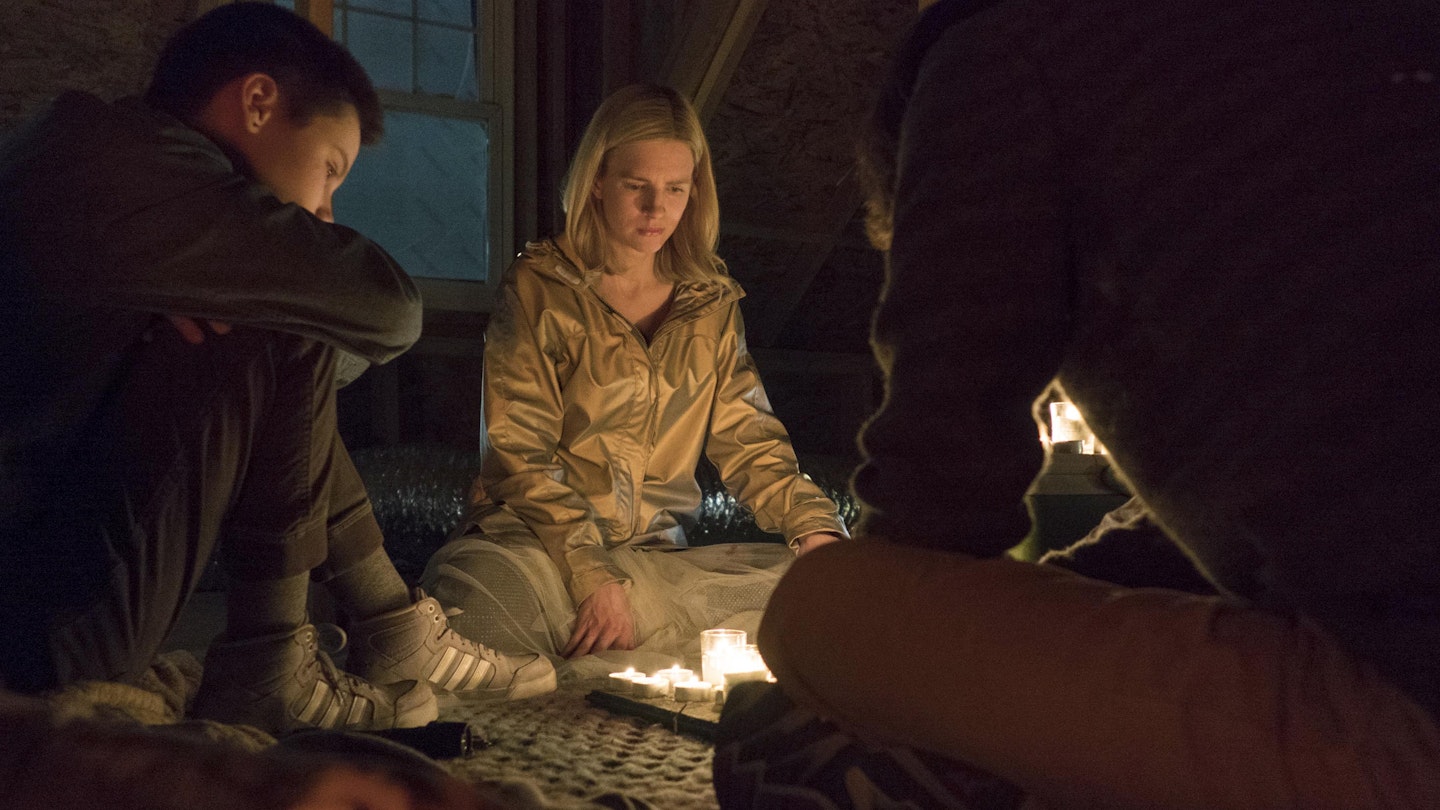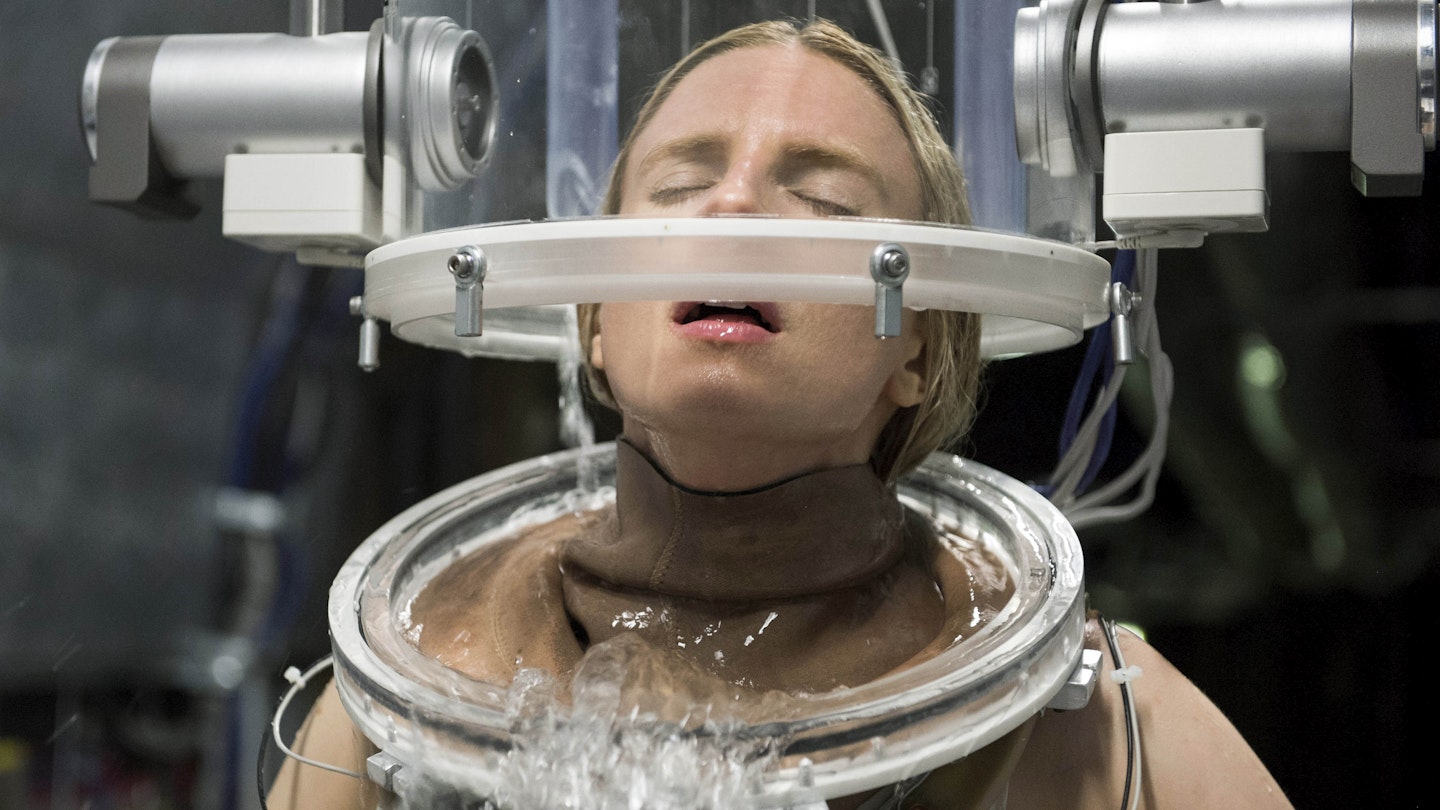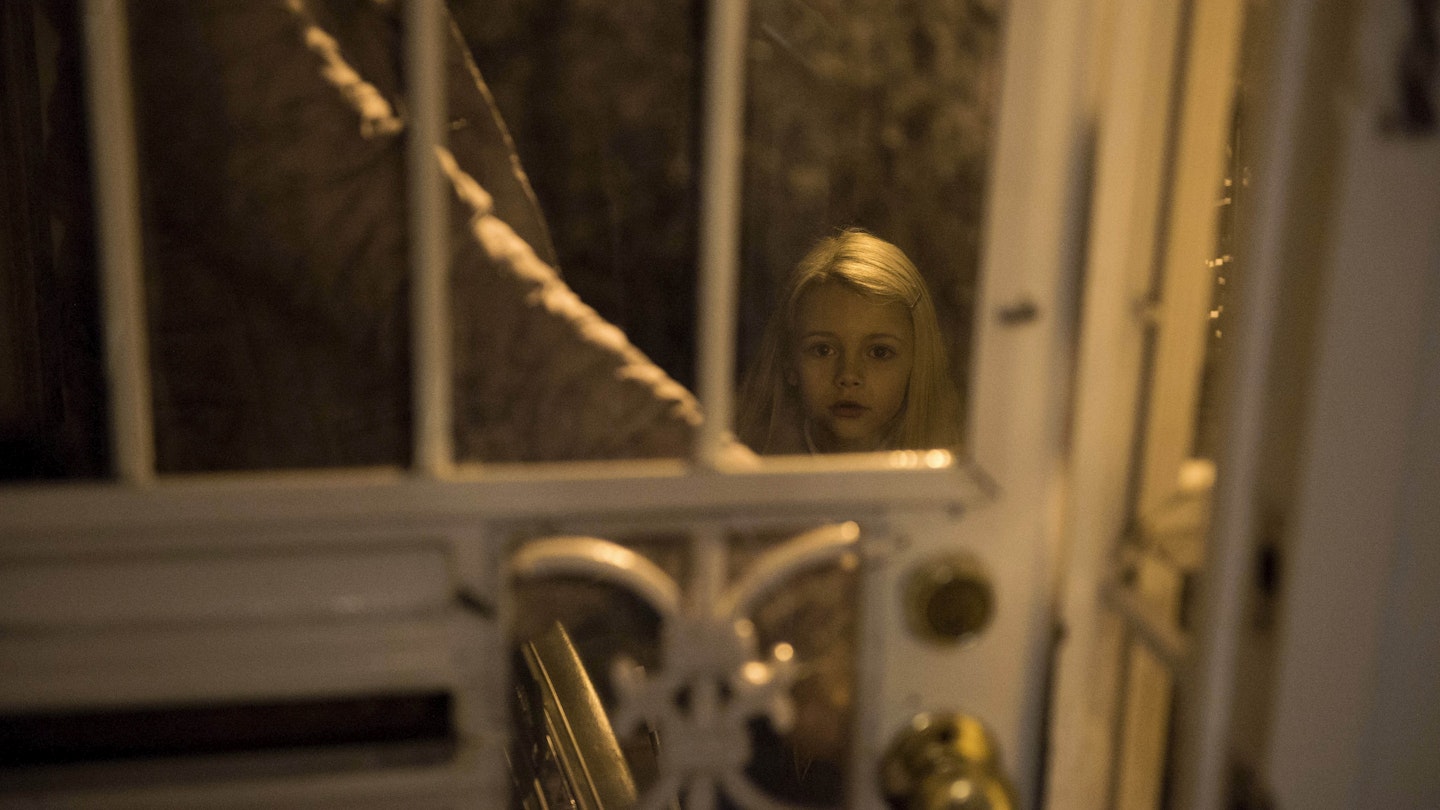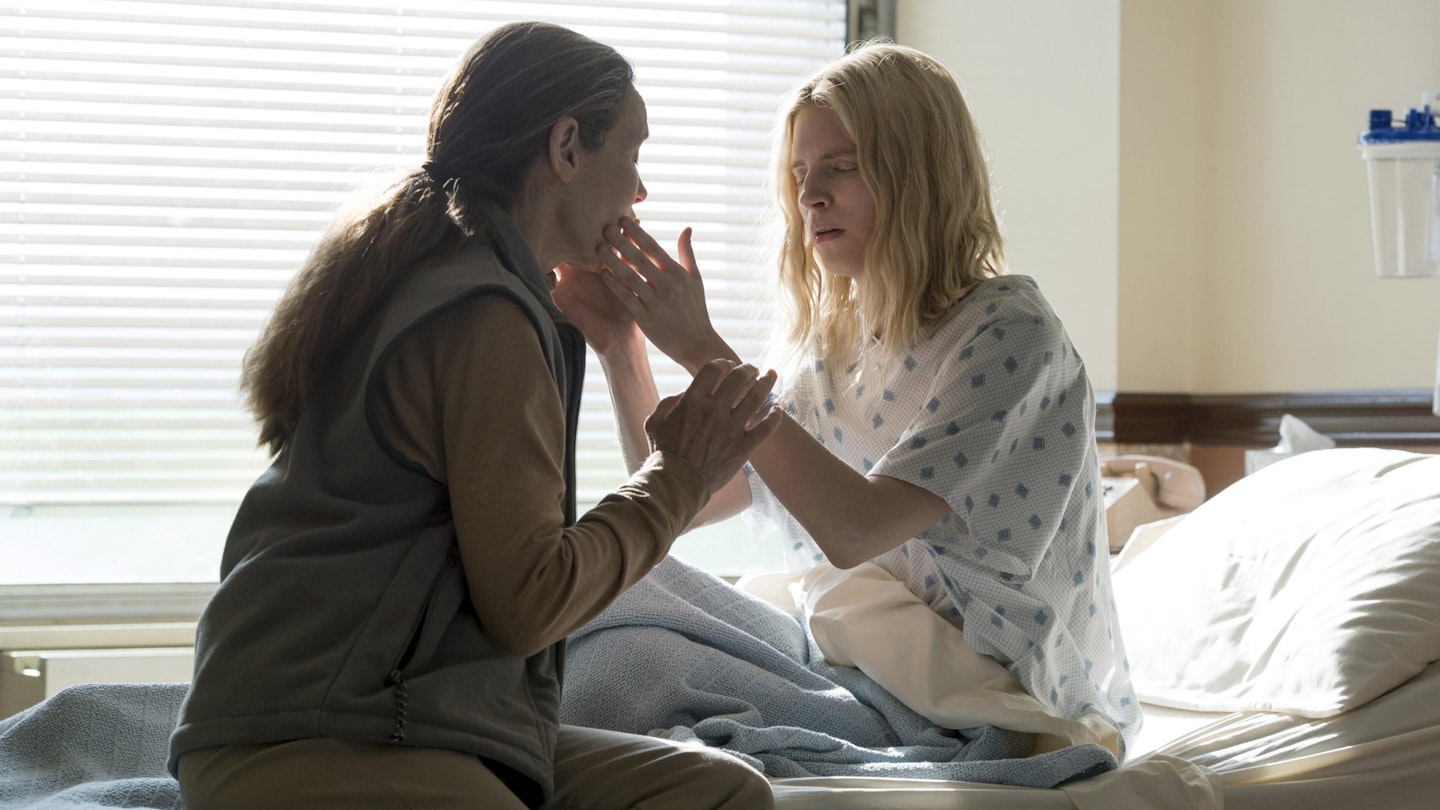What is The OA? Until as recently as last week, almost nobody had any idea. A Google search for “The OA” would only bring up a couple of trade news stories about a mysterious new Netflix show from Another Earth’s Brit Marling – and an RSPB nature reserve of the same name.
Now all eight episodes of The OA have arrived on the streaming platform, we spoke to Marling – the show’s star, producer, and co-writer – on the secrets and mysteries behind what is highly likely to be your next binging obsession.
It’s a show about a missing girl – and so much more

Marling is careful about giving away too much in her synopsis of the film, talking only about the “first layer.” Here's how she puts it: “A blind teenage girl goes missing. Seven years later, she's found, and her sight has been restored. Then quite strangely, she begins to connect with a group of wayward teenage boys and their teacher. You realise as she starts telling the story of what happened to her that maybe she's telling them as a means to recruit them to some sort of mission. At least, that's the first thread of the mystery...”
We’ve heard nothing about it until now – and that's deliberate
The first trailer for The OA only arrived last week, seven days before the entire series launched. Marling, her co-writer and co-showrunner Zal Batmanglij, and Netflix have been cagey about giving too much away. This, Marling says, is deliberate. “We spent so much time prodding the emotional mechanics of the story and the mathematics of the mind-bender,” she explains. “I think because we spent so much time doing that work, we always had a very secretive stance about it."
The story goes to some pretty far-out places...
Secrecy was a running theme throughout the show’s production – during filming, the show’s title was only written on scripts in braille, and there were no public casting announcements. “To me, I love the feeling of going to a film festival, and I know nothing about the film,” Marling says. “I love to just watch something and surrender myself to the experience. I love the possibility that it will just arrive on Netflix and people can lose themselves in mystery without knowing anything.”
It’s a slow-burn mystery
The OA’s first episode (or ‘chapter’, as Marling prefers) is full of intrigue – a feeling that continues as the season progresses. In fact, the true nature of the show's lead character Prairie Johnson (played by Marling herself) is only revealed in chapter 4. That, too, was deliberate. “The story goes to some pretty far-out places,” admits Marling. “You've got to take your time bringing the audience there. It's like, if you were in a car, and went from first gear to sixth in the span of a block. You could do that, but it's a jolt!”
It explores the power of storytelling itself
We learn about Prairie's story as she tells it, by candlelight, to a dysfunctional group of teenage boys and their teacher. Marling says this reflects on the show itself. “From the very beginning it was a meditation on the power of storytelling,” she explains, “and the power of the storyteller to enchant and enthrall and possibly smuggle something across of value in idea or morality or thought. And maybe in this case something that the boys desperately need and are finding in their school, in their homes, in stuff they're finding online...they're deeply in need of something other, and I think maybe her story offers something.”
It spans multiple genres – to keep you on your toes
“We call it ‘genre slipstreaming’ – moving back and forth between genres seamlessly,” as Marling puts it. “So you're not just a coming-of-age story. You start as a family drama, and then it becomes coming-of-age, and then it slips into horror, and sci-fi, and back into coming-of-age again, and then you're in metaphysical thriller...”
The average audience member has such a high story IQ now. You gotta get a little bit ahead.
Audiences have become so sophisticated, Marling says, that they expect more. “The average audience member has such a high story IQ now. We all consume so much story all the time. You gotta get a little bit ahead! Otherwise the viewer is like, ‘I know what your mid-point crisis is! I can tell what your second act turning point is!’ They can see it coming. I guess we were trying to stay ahead at every turn.”
It has rewatchability value
The OA was “designed elliptically, rather than a linear story,” Marling says, so there are certain details that initally seem meaningless but would take on extra meaning, second time around. “So much of the early episodes probably feels a bit mysterious or cryptic – but it all has intention! I think it would be really exciting if people watched it again.”
It's essentially an eight-hour-film
Marling – whose background is in films like Another Earth and Sound Of My Voice – thinks The OA “has more in common with film” than television. (The opening titles don't arrive until 57 minutes into the first chapter.) “In some respects we didn't really work in television. Zal [Batmanglij, her creative partner] directed all eight hours. We were showrunners together. We conceived it all upfront. The thing that normally guides you through TV is that there's a concept and a showrunner but different directors come on and continue that vision. You have a rolling production in which other episodes are preparing while others are shooting and others are editing. This had a really different rhythm to that. It was basically just like making a film, only times four."
It can be binged – if you want
Seeing as it is an eight-hour film, does The OA lend itself to a traditional Netflix-and-chill marathon? “It really depends on the viewer,” says Marling. “You could, and some people have. But also, it's almost like a good novel sitting beside you on the nightstand. One night you can read two chapters, and one night you can read four – you can't put it down. Go at your own pace according to your life. I think that's what's exciting about this form of storytelling is that it gives a lot of autonomy to the viewer.”
Netflix have given the showrunners creative freedom

“I think they're innovators,” says Marling of the streaming giants. “Netflix's earliest DNA as a tech company was to be natural risk-takers. Any time you want to be on the frontier of storytelling, you can only do it with partners who are that excited to try something new.”
For example, each episode is roughly an hour long, sometimes a bit longer, sometimes a bit shorter (an inconsistency that would never be allowed on network television). “At every turn, what's been so exciting about making this show with Netflix is, you might say to them, 'we'd really love to let the story tell itself. We want the chapters to be whatever length the story needs'. And they were like, 'yeah, sounds cool'.”
It’s open to fan theories
Other shows of a similarly mysterious nature, like Westworld or Lost, quickly lead to frantic and furious fandoms, assembling into online communities which attempted to unravel the show's knotty secrets – a concept Marling is fully open to. “I think it would be fantastic if people felt compelled to work out the mystery with each other,” she says. “It's certainly a story which lends itself to that kind of scrutiny. I think forensic fandom is a really cool thing – you can watch these shows with real detail and thoroughness. It's not like they just air once on your TV and then disappear. A careful viewer like that is going to find a lot of interesting things on repeat viewing. It'll be really interesting to see the theories which spring up..."
A second season is possible – but it’s a complete story in and of itself

The final episode of the season gives a sense of finality to the story , but also leaves several story threads ambiguous. Marling and Batmanglij have story ideas for a second season, should one be commissioned – “my gosh, I think we would love to do it, if we were to be so lucky!” – but are also keen that the first eight episodes feel like a contained story with a satisfying ending. “We conceived ways in which each potential season could feel like a book, and could have its own conclusiveness, the way you'd have the satisfaction from reaching the end of a novel. I think there's certainly a lot more story to tell. We'll see...”
The OA is now streaming on Netflix. Read Empire's review.
